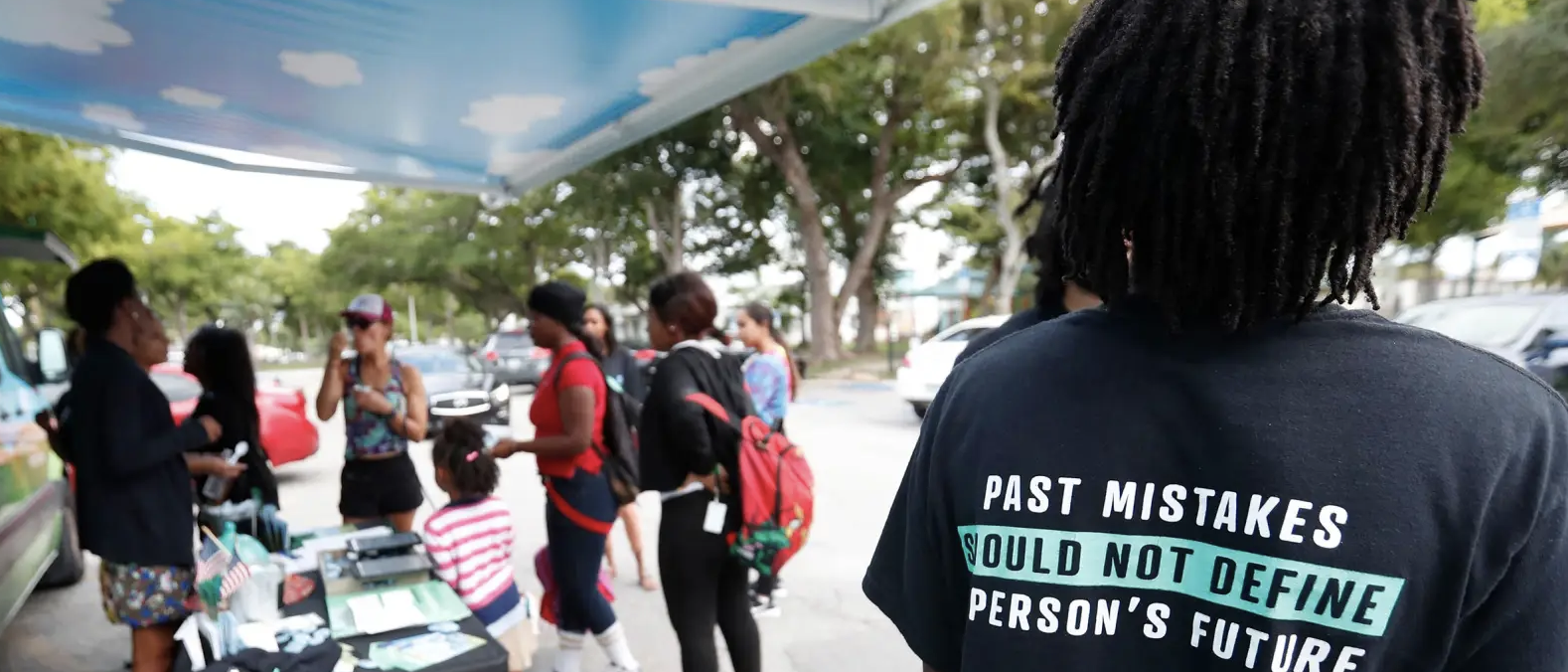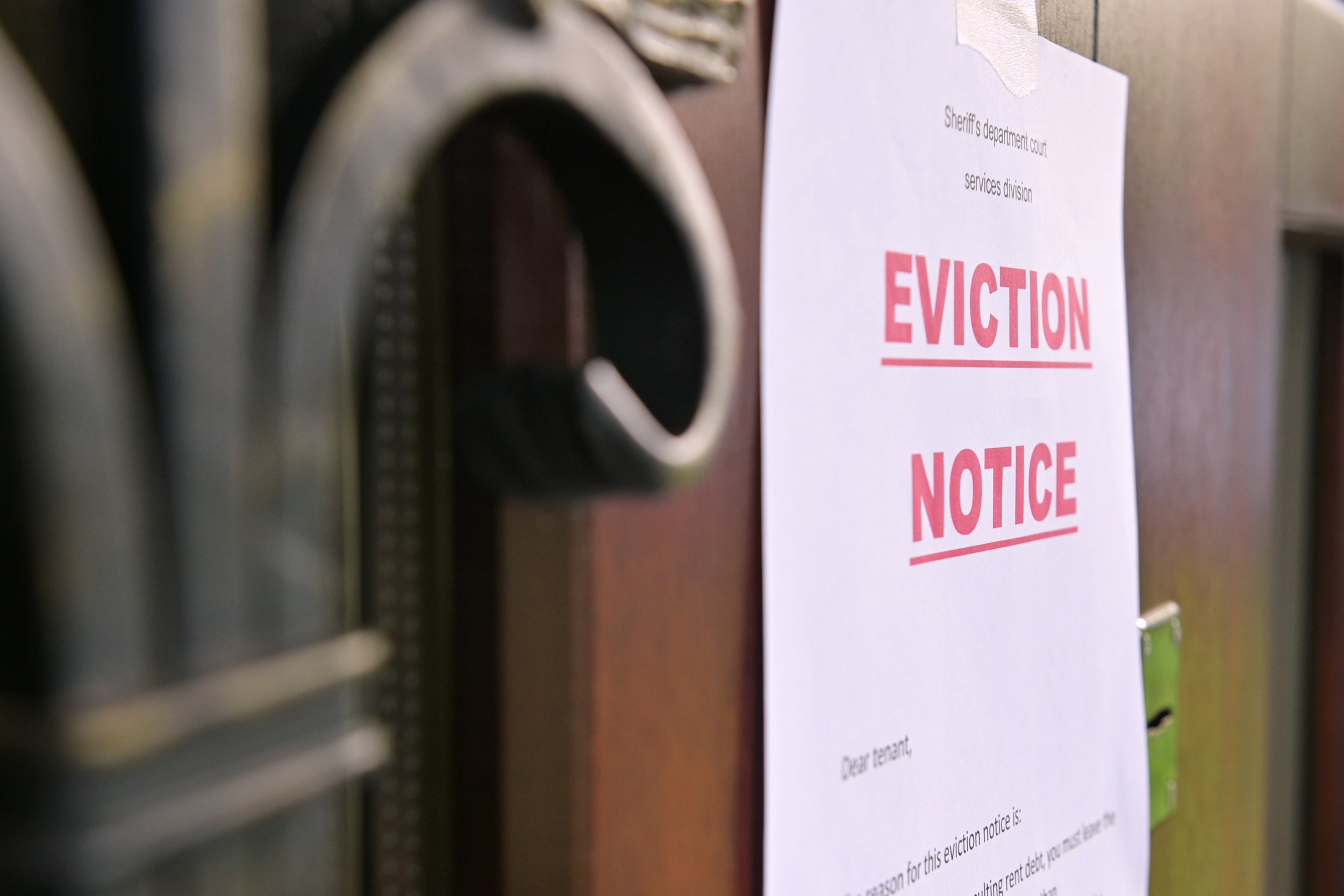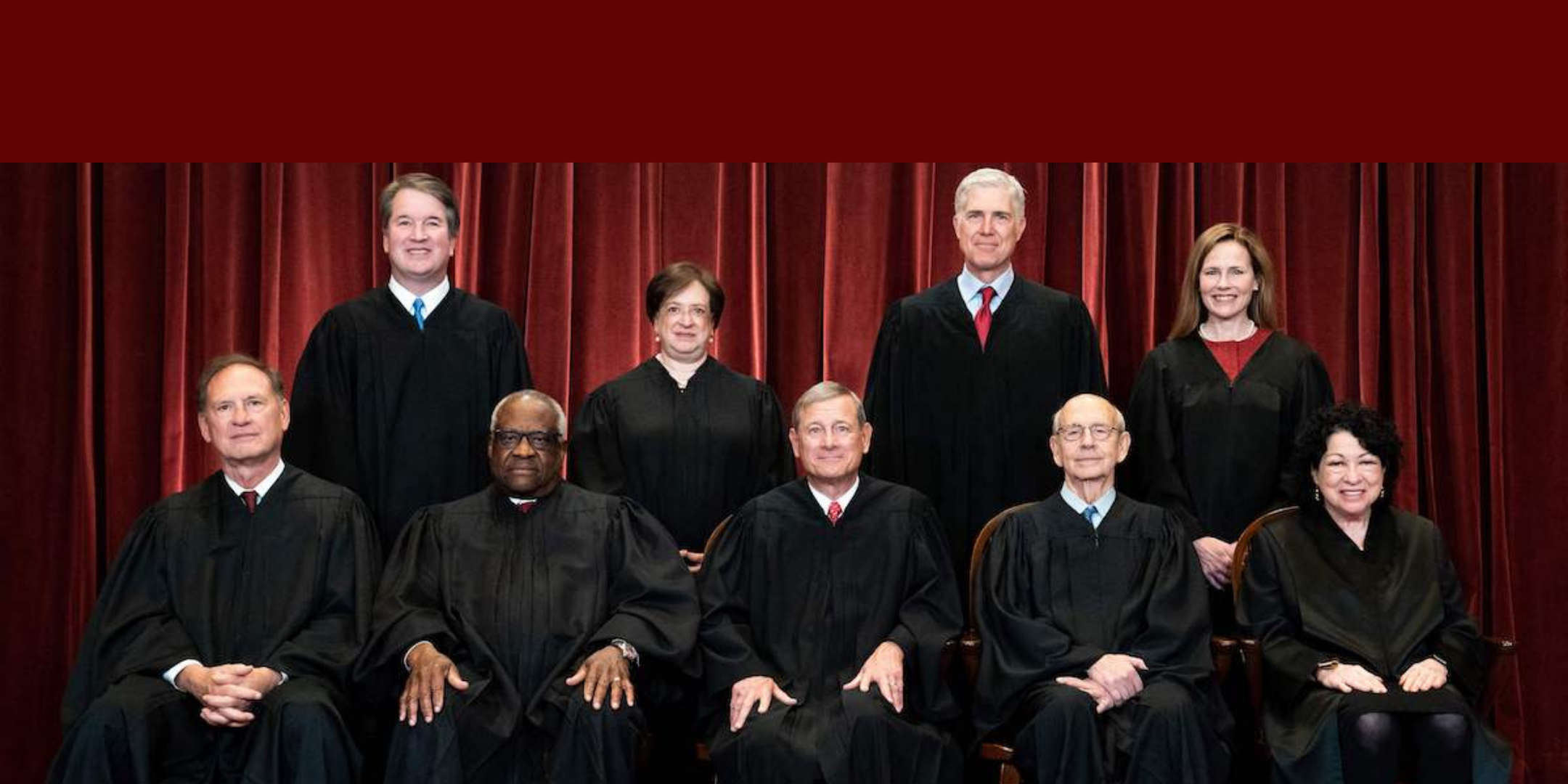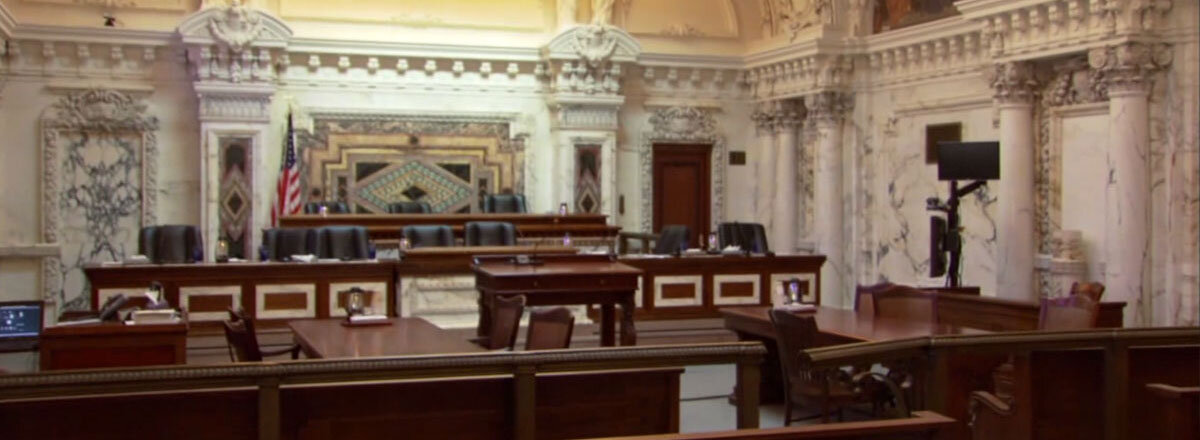
PRACTITIONER BLOG
Read our analyses of developments in Impact Litigation and stay current on class action law

Case Advances Challenging “Debtors' Prison” for Non-Payment of Bond Supervision Fees in Texas
Anderson County’s bond supervision fee is another example of criminalizing poverty, and another example of how Texas is a major civil rights battlefield right now. Ability to pay is not considered and not paying can mean jail time. In other words, pre-trial defendants can be incarcerated simply because they can’t afford a fee — a modern-day debtor’s prison.

Southwest flies into trouble as SCOTUS holds transportation workers exempt from Federal Arbitration Act
For decades, conventional wisdom favored an expansive, business-friendly interpretation of the Federal Arbitration Act of 1925—one that has made it easier for corporations to force workers and consumers into arbitration. But this term, in Southwest Airlines v. Saxon, the Supreme Court took a different approach. Following argument by our colleague Jennifer Bennett, the Court zeroed in on the text of the FAA—specifically, how that text would have been understood when the statute was passed in 1925—and recognized an important limitation on what types of workers can be forced into arbitration.

Class Action Challenging Voter Suppression in Tennessee Survives Motion to Dismiss
Under Tennessee law, anyone convicted of a felony after 1981 is stripped of the right to vote. The result of this policy is that more than 9% of the total voting age population of Tennessee – and more than 21% of African-American voting age population – cannot vote. Despite more than 365,000 Tennesseans having completed their entire felony sentences, including probation and parole, only about 3,400 people have successfully obtained Certificates of Restoration since 2016 – less than 1%.

Ninth Circuit Finds That Discrimination Is A Concrete Injury For Purposes Of Article III Standing
The last few years have brought more and more standing-based challenges to our clients’ ability to have their day in court, with some success – look no further than TransUnion v. Ramirez, for example. Fortunately, the Ninth Circuit just rejected an attempt to insulate a bank from liability for admitted citizenship discrimination on standing grounds. Chattopadhyay v. BBVA is a class action alleging that BBVA (Banco Bilbao Vizcaya Argentaria) discriminates on the basis of citizenship status in violation of 42 U.S.C. 1981 and California’s Unruh Civil Rights Act.

BROWN UNIVERSITY RE-LEARNS TITLE IX LESSON: DON’T “RILE UP” THE AMY “COHENS OF THE WORLD”
Cohen v. Brown University, which the First Circuit just referred to as “This landmark Title IX case,” started in April 1992, after the school stopped funding its varsity women’s gymnastics and volleyball teams. Eleven female athletes won precedent-setting rulings, preserved their teams, and forced Brown to comply with Title IX notwithstanding Brown violating the agreement in the open to “kill this pestilential thing.”

RESPONDING TO THE RESTRICTION OF EMPLOYMENT DISCRIMINATION CLASS ACTIONS
The arc of employment discrimination class action law is bending away from justice. As a result, plaintiffs’ lawyers frequently have to self-censor, generally in the opening complaint or the class certification motion, or as we did in Simpson at the 23(f) stage. Maximizing the chances for certification may require defining the class or multiple small classes so as to eliminate potential class members, claims, or forms of relief. Unfortunately, this type of self-censorship deprives employees of the possibility of obtaining the types of broad reforms that we were once able to achieve and hopefully can again pursue in the future as the law evolves.

Impact Fund Stands With Low-Income “Section 8” Tenants
Throughout her tenancy, Terry’s property manager demanded that she pay for “additional services,” such as laundry machines, renter’s insurance, and parking—including for a period when she did not own a car. When she couldn’t pay, they tried to evict her. Terry was not alone. Wasatch Property Management and its related entities, whose portfolio includes more than 16,000 units across five states, charged hundreds of Section 8 tenants similar fees, using 3‑day notices to threaten eviction when tenants failed to pay.

Our Bosses Are Spying On Us: Here’s How We Can Fight Back Against Bossware
Workers’ advocates should ensure that workers understand their rights under applicable laws and encourage them to document and report uses of bossware that threaten their health and safety. Advocates should also share information with each other about harmful employer practices and technologies so that they are better-positioned both to protect workers and push for systemic policy changes. Employers will not slow their adoption of bossware systems, nor lessen other exploitative practices. Advocates must remain vigilant to ensure that bossware’s spread does not further erode workers’ rights to just labor conditions, continued well-being, and inherent dignity.

“With Friends Like These” - How Not to Write an Amicus Brief: More Lessons On Class Action Law From Mr. T v. Social Media
Prompted by former President Trump’s spate of class actions against Facebook, Twitter, and Google, we recently shared some best practice tips on filing class actions, a topic close to our hearts. A new court filing and order in Mr. Trump’s case against Twitter offers us yet another opportunity to weigh in on a different and important subject to the Impact Fund’s mission—writing effective amicus briefs. So what have we learned? Write an amicus brief that actually says what you say it says. Write an amicus brief that is about an issue actually in the case. Don’t include six-page footnotes. Don’t suggest that the judge needs something explained at a fifth-grade level. Don’t tell the judge to issue an edict that the legislature pass a better law than the one on the books.

Students With Disabilities Score Class Action Victory In Second Circuit
Earlier this month, the Second Circuit issued a great published decision in A.R. v. Conn. State Bd. of Educ., No. 20-2255, 2021 WL 2833031 (2d Cir. July 8, 2021) affirming a permanent injunction prohibiting the Board from terminating programs for students with disabilities who did not receive their high school diplomas before turning 22. The panel upheld the district court’s conclusion that a Connecticut law denying special education programs to students between their 21st and 22nd birthdays violated the federal Individuals with Disabilities Education Act (IDEA), which requires free, appropriate education for students with disabilities.

Mr. T and Rule 23: How Not to File a Class Action Against Facebook
A set of recently filed class actions against three big social media platforms are getting a lot of press and, of course, caught our eye. Constitutional scholars have already had lots to say about the legal theory in those cases but, as we said, we’re all about complex civil procedure – so we asked, “can these class actions fly?” We thought these new cases might offer some teachable moments for would-be class action lawyers who may be thinking they are ready to run the gauntlet of Federal Rule of Civil Procedure 23, the rule that governs class actions in federal court.

SCOTUS Rules on TransUnion v. Ramirez Class Action: "We Decide If It’s a Federal Case, Not Congress."
On the one hand, the outcome is hardly surprising. The conservative majority has once again limited access to the federal courts for consumers to challenge corporate malfeasance, erecting ever higher threshold procedural hurdles. On the other hand, the decision holds some interesting surprises, including a full-throated defense of the rights of the injured consumers by the dissenting Justice Thomas, joined by Justices Breyer, Kagan, and Sotomayor. The decision is well worth a close read.

Ninth Circuit Nixes "100% Natural" Wesson Oil Class Action Settlement; Finds Collusion On Attorney Fees
The court held that the class settlement—one it characterized as “reek[ing] of collusion at the expense of class members”—featured three “red flags” identified in Bluetooth. First, Plaintiffs’ counsel received a disproportionate share of the settlement—almost $7 million—while the class received less than $1 million. Further, the settlement provided for no direct notice to class members, reducing the redemption rate. Second, the parties agreed to a “clear sailing arrangement” in which ConAgra agreed not to challenge the agreed-upon fees for class counsel. This created the possibility that Defendant agreed to pay class counsel excessive fees in exchange for counsel accepting a lower amount for class members. Third, the agreement included a “kicker” or “reverter” clause in which ConAgra, not the class members, would receive a reversion of excess fees if the court reduced the agreed-upon attorney’s fees.

SCOTUS Issues Narrow Decision on Religious Refusal to Support Foster Care by Same-Sex Couples and Declines Opportunity to Create a Broad Right to Discriminate
Many LGBTQ+ advocates feared that the Supreme Court would use the Fulton decision as an opportunity to license discrimination against vulnerable groups on religious bases. Fortunately, the majority decision was narrowly focused on Philadelphia’s contracts with foster care agencies and made no general right for taxpayer-funded foster agencies to discriminate. Today’s decision is an important reminder that the primary responsibility of child services agencies is to help ensure that kids can be in loving homes where they can thrive—including those of LGBTQ families.

Eastern District of New York Grants Class Certification to Incarcerated People Who Faced Inhumane Conditions
Plaintiffs also alleged that MDC staff failed to provide them adequate food and clothing and deprived them of access to hot water for cleaning, bathing, and laundry. Plaintiffs were forced to wash themselves in their cell sinks with cold water or forego washing for fear of getting sick. One resident suffering from ulcerative colitis had bloody bedding that had not been changed because of the lack of laundry services. Other incarcerated people with chronic medical conditions did not receive their medication and were unable to receive medical treatment. Class members also reported not being able to use their CPAP machines, not having access to mental health staff, and even enduring dirty bandages that had not been changed in weeks.

Impact Fund and Amici: Ninth Circuit’s New “De Minimis” Standard for Predominance Is Wrong and Disadvantages Workers
Our brief argues that the panel’s decision is inconsistent with decades of Supreme Court and Ninth Circuit precedent regarding class certification and trials challenging employment discrimination and other workplace violations, such as wage theft. To require plaintiffs to demonstrate no more than a “de minimis” number of uninjured class members at the class certification stage forces district courts to engage in a full-blown inquiry into the merits of the case, an inquiry which the Supreme Court and the Ninth Circuit have repeatedly stated courts are expressly forbidden to undertake at that stage.

Uninjured Class Members - How Many Is Too Many? Ninth Circuit Weighs In On Class Action Article III Standing
So how exactly does Article III work in a class action? It is generally understood that, at the outset of a class action, Article III standing is determined based on the claims of the named plaintiffs. At the tail end, if the case goes to judgment, unnamed class members must prove an Article III injury in order to receive damages. But what about in the middle of the case? What about at class certification?

Impact Fund and Western Center on Law and Poverty Reach Settlement with USDA to Provide Emergency Food (SNAP) Assistance to Californians with Greatest Need
Over one million California households will soon be eligible to receive emergency COVID-19 related nutrition assistance, thanks in part to a settlement agreement reached yesterday by the Impact Fund, Western Center on Law and Poverty, and the U.S. Department of Agriculture. This important victory comes after ten months of litigation in Hall v. USDA, which challenged the Department’s interpretation of the March 2020 law authorizing emergency Supplemental Nutrition Assistance Program (SNAP) payments—otherwise known as food stamps—to current SNAP recipients. Within hours of the settlement, USDA issued new guidance announcing a policy change that will provide at minimum $95 a month in emergency assistance to all households participating in SNAP on top of their regular monthly benefits. This updated policy will ensure the lowest-income Californians will have access to vital nutrition assistance while continuing to deal with the severe economic and public health consequences of the COVID-19 pandemic.

Unanimous SCOTUS decision in Ford case a big win for consumers, clarifies doctrine of personal jurisdiction
The Supreme Court’s recent 8-0 decision in Ford Motor v. Montana Eighth Judicial District Court, No. 19-368 (U.S.S.C. March 25, 2021), on personal jurisdiction is a feast for those who love civil procedure and a victory for consumers. The case is about whether state courts can exercise specific personal jurisdiction over a corporate defendant in individual personal injury actions and was an effort by a global corporate defendant to push Bristol-Myers still further in the direction of limiting the forums in which victims of corporate malfeasance may sue defendants. In this case, Ford got no traction from any of the justices even those who were in the majority in Bristol-Myers.

Impact Fund Sponsor Huntington Bank serves in pro bono role for Flint Water Crisis Settlement
In early 2021, a $641 million settlement between the residents and businesses of Flint and various government defendants received Preliminary Approval by the Court. Nearly 90,000 Flint residents were impacted by the Flint water crisis, and the settlement will create a compensation fund to help those affected, predominantly children. Huntington Bank, selected by Special Master Deborah Greenspan, is working with Counsel, the Claims Administrator, and the Court in support of the settlement fund for the victims. As a leader in the community, Huntington volunteered to serve as escrow agent and distribution bank on a pro bono basis. Huntington has also committed to partner with local leaders and community organizations to identify financial and socioeconomic barriers faced in the region.
